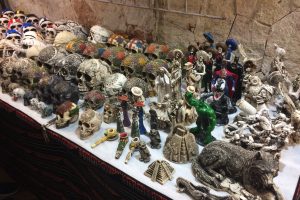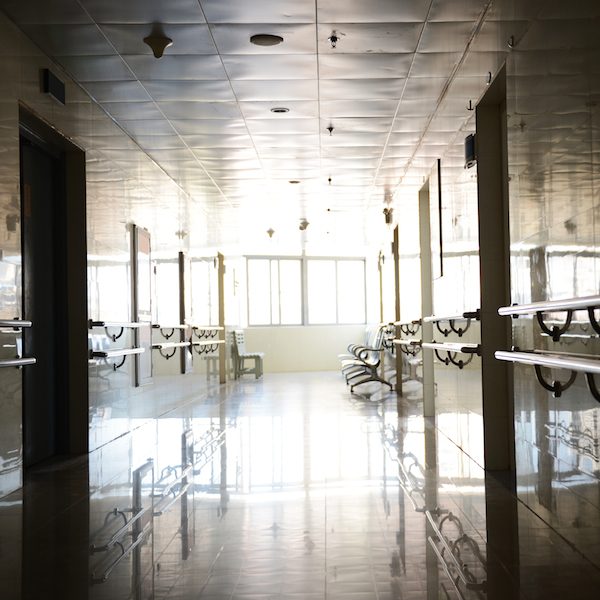
Translated from Urdu by
Sir Muhammad Zafrulla Khan
Second Insight
The second insight concerning the life after death, which the Holy Qur’an has set forth is that: in the hereafter, all the spiritual conditions of this world will be manifested physically, both in the intermediate state and in the resurrection. In this context one verse is that he who continues blind in this life will be blind in the hereafter and even more astray.1 This means that the spiritual blindness of this life will be manifested and felt physically in the hereafter. In another verse it is said that: seize this hellish one and put a collar round his neck and burn him in hell and bind him in a chain the length of which is seventy cubits.2 These verses show that the spiritual torment of this world will be manifested physically in the hereafter. For instance, the collar of worldly ambition which had bent his head towards the earth will become physically perceptible in the life after death. Similarly the chain of worldly preoccupations will become visible round his feet, and the fire of worldly desires will appear in full blaze.
A vicious person conceals a whole hell of worldly greed and desires inside himself, and perceives the burning sensation of this hell at the time of his failures and frustrations. So when he is cast away from his mortal desires and becomes subject to eternal despair, God Almighty will cause his sorrow to be manifested physically in the shape of fire; as is said: a barrier will be placed between them and that which they yearn after, and that will be the root of their torment.3 The chain of seventy cubits is an indication that a wicked one often attains the age of seventy years and sometimes, leaving aside his years of childhood and extreme old age, he is granted a period of seventy years which he could employ for work wisely and with good sense. But an unfortunate one spends these seventy years caught in the coil of worldly preoccupations and does not desire to be free of them. Thus God Almighty affirms in this verse that the seventy years that such a one spends in worldly pursuits will be manifested as a chain of seventy cubits in the hereafter, one cubit for each year. It must be kept in mind in this connection that God Almighty does not afflict any creature of His with a misfortune from Himself. He merely confronts a person with his own evil deeds. At another place He has said: O the wicked! The errant proceed towards three-pronged shadow, which has three branches they can neither provide shelter nor can they protect from scorching heat.4 The three branches mentioned here represent bestiality, savageness and wild imagination. In the case of those who do not regulate these faculties and thus convert them into moral qualities, they will manifest themselves in the hereafter as three branches of a tree, which are bare of leaves and can afford no shade or protection against fire, so that such people would be consumed by the fire. As a contrast, God Almighty has said concerning the dwellers of heaven: on that day you will see that the light of the believers which remain hidden in the world will manifest itself by, running before them and on their right hands.5 In another verse it is said: on that day some faces will be bright and others will be dark.6
A third verse sets out: the Garden promised to the righteous is as if it has rivers of water that corrupts not; and rivers of milk of which the taste changes not; and rivers of wine, which do not inebriate, a delight for those who drink; and rivers of pure honey, which has no impurity.7 It is clearly stated here that heaven should be understood as metaphorically comprising inexhaustible streams of these bounties. This means that the water of life which a person of spiritual understanding drinks in this life will be manifested visibly in the hereafter. The spiritual milk by which he is sustained, like a suckling in this life, will become physically visible in heaven. The wine of God’s love which inebriated him all the time spiritually in this life, will be manifested in the shape of rivers in heaven. The honey of the sweetness of faith which a person possessing spiritual understanding swallowed spiritually in this world, will be manifested and felt physically in heaven. Every dweller of heaven will proclaim his spiritual condition openly through his gardens and rivers. God will unveil Himself on that day for the dwellers of heaven. In short, spiritual conditions will not remain hidden in the hereafter but will be physically visible and perceptible.
Third Insight
The third insight concerning the hereafter is that there will be unlimited progress therein, as God Almighty has said: the light of the believers will run before them and on their right hands. They will supplicate: “Lord, perfect our light for us and cover us with Thy grace, surely Thou hast power over all things.”8 Their supplication that their light may be perfected is an indication of limitless progress. It means that when they have arrived at one stage of illumination, they will perceive a higher stage ahead of them and viewing it they will consider the stage in which they are as being inferior and will supplicate for the attainment of the higher stage, and when they arrive at that stage they will perceive a still higher third stage ahead of them and they will supplicate for its achievement. Thus their yearning for constant progress is indicated by the expression: Do Thou perfect our light. In short, this chain of progress will continue indefinitely. There will be no falling away, nor will they be expelled from heaven, but will daily advance further forward.
It may be asked that as they will have entered heaven and all their sins would have been forgiven then what further need would there be for supplicating for forgiveness? The answer is that the true meaning of maghfirat (seeking forgiveness), is to suppress and cover up an imperfect or defective condition. Thus the dwellers of heaven will seek the attainment of perfection and their complete absorption in light. Observing a higher condition they will consider their condition defective and would desire its suppression, and then observing a still higher condition they would desire that their lower condition should be covered up and thus they will continuously seek unlimited maghfirat. This seeking of maghfirat, or istighfar, is sometimes made the basis of adverse criticism of the Holy Prophet(saw). I trust that now it will have become clear that the desire for maghfirat is a matter of pride for man. He who is born of woman and does not make istighfar his habit, is a worm and not man, he is blind and not seeing, he is unclean and not pure.
In short, according to the Holy Qur’an, hell and heaven are both reflections of a man’s life, and are not something new that comes from outside. It is true that in the hereafter they will be manifested physically, but they will be reflections of the spiritual conditions of man in this life. We do not conceive of heaven as containing material trees, nor of hell as full of brimstone and sulphur. According to Islamic teachings heaven and hell are the reflections of the actions that a person carries out in this world.
Endnotes
- But whoso is blind in this world will be blind in the Hereafter, and even more astray from the way. (Ch.17:V.73)
- ‘Seize him and fetter him, ‘Then cast him into Hell. ‘Then put him into a chain the length of which is seventy cubits. (Ch.69:Vs.31-33)
- And a barrier will be placed between them and that which they long for… (Ch.34:V.55)
- Aye, move on towards a shadow which has three sections. Neither affording shade, nor protecting from the flame. (Ch.77:Vs.31-32)
- And think of the day when you will see the believing men and the believing women, their light running before them and on their right hands… (Ch.57:V.13)
- On the day when some faces shall be white, and some faces shall be black… (Ch.3:107)
- A description of the Garden promised to the righteous: therein are rivers of water which corrupts not; and rivers of milk of which the taste changes not; and rivers of wine, a delight to those who drink, and rivers of clarified honey… (Ch.47:V.16)
- …and those who have believed with him. Their light will run before them and on their right hands. They will say, ‘Our Lord, perfect our light for us and forgive us; surely Thou hast power over all things.’ (Ch.66:V.9)




Add Comment